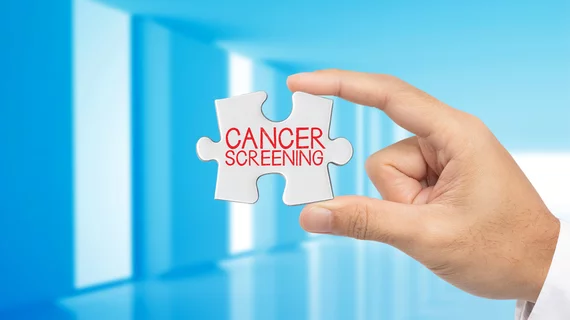White House highlights actions taken by RadNet, Siemens Healthineers as signs of Biden Cancer Moonshot progress
The White House issued a progress report for the Biden Cancer Moonshot initiative on Thursday, highlighting key actions taken by RadNet and Siemens Healthineers, among others in the private sector.
The feds first launched the effort two years ago, issuing a “call to action” on cancer screenings, with Americans collectively missing 10 million recommended exams amid the pandemic. Over 35 organizations have now stepped up with new actions and collaborations, chasing the goal of preventing 4 million cancer deaths by 2047.
“These accomplishments deliver significant progress toward addressing President Biden’s goal to end cancer as we know it. There is still more work to do,” the White House said in a May 9 news update.
RadNet and its Delaware Imaging Network have now expanded the Enhanced Breast Cancer Detection Program to seven states including New York, New Jersey, Maryland, Delaware, Florida, Arizona and California, the White House noted. EBCD offers women the chance to pay $40 out of pocket to have artificial intelligence read their mammogram. Since launching in 2022, the program has successfully identified breast cancer in over 450 individuals.
The publicly traded, Los Angeles-based imaging center operator shared the White House update on social media Thursday.
“We are proud to be a part of the #BidenCancerMoonshot initiative, which strives to raise awareness and improve access to cancer screening,” RadNet said May 9. “Without our program, these cancers may have gone undetected in a traditional screening setting or been diagnosed at a later stage with potentially less favorable outcomes,” it added later.
In 2023, Siemens Healthineers committed to bringing uninsured women free mammograms to address screening disparities in underserved urban and rural regions. As of this month, the company has provided over 1,500 uninsured women with free mammograms, and it continues to partner with community organizations on screening for concerns of the breast, lung and liver.
The administration also highlighted other private sector initiatives related to radiology. For instance, pharmaceutical firm AstraZeneca and the Association of Community Cancer Centers created the Rural Appalachian Lung Cancer Screening Initiative to address the high mortality rate in this geography. Since announcing the partnership in 2022, the association has launched screening quality improvement projects in Kentucky and Virginia. It also has published resources such as a lung cancer infographic, screening guide and geographic information systems map, the administration noted.
Nueva Vida and Family Reach partnered in 2022 to provide community navigation and financial support to Latinas facing breast cancer in the Baltimore-Washington metropolitan area. In two years, Nueva Vida has now supported over 1,000 women in accessing breast cancer screenings and other diagnostic services, the White House reported. Following a diagnosis, 110 women received direct financial assistance for needs such as food, housing and transportation.
You can read much more about the Cancer Moonshot’s progress in the White House update here.
Editor's Note: A previous version of this story misstated the cost of RadNet's EBCD program, which is $40. Radiology Business regrets the error.

